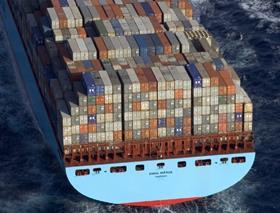
The South African deciduous, citrus and sub-tropical fruit industries have jointly decided to approach the country's Competition Commission regarding the congestion charges leveled on exporters by shipping lines during the recent transport workers' strike.
The imposition of the congestion charges by first Maersk Line, and more recently other shipping lines, drew heated criticism from the country's fruit industry which regarded the charges as unfair. Exporters were advised to refuse to pay the surcharges and the industry advised the South African government that they held Transnet, the parastatal which controls the country's container terminals, responsible for the cost of the strike.
The country's fruit industry now claims that the congestion charges contravene the Competition Act, and have subsequently reported the shipping lines.
'It seems that container lines have decided to impose the congestion surcharge, despite objections from their 'valued customers' and the questions which were raised about collusion and legality of such a charge,' said Justin Chadwick of the CGA.
'The few shipping lines who bothered to respond to the CGA letter gave a number of reasons for the surcharge but none of them were due to any action or inaction of the cargo owner. They were all to do with the actions of those parties involved in the strike,' Mr Chadwick continued. 'Unfortunately the reality is that exporters are faced with Hobson's choice when they receive the shipping invoice – either pay (including the congestion surcharge) or your container does not get shipped.'
Mr Chadwick said a representative of one of the container lines told him: 'You have no choice.' He noted that this action did not sound like acting within the principles of a free market system.
'Growers and export agents at the Citrus Marketing Forum (CMF) last week agreed to approach the Competition Commission with regard to the congestion surcharge,' Mr Chadwick explained. 'The citrus industry has been joined by the deciduous and sub-tropical sectors in this action, which is now in process.'
In the meantime, exporters that have to pay the congestion charges are advised to state clearly that they did not accept liability for the cost and that payment is done under protest, without prejudice to their rights.
'If the surcharge is found to be illegal, or imposed in contravention of the Competition Act, then a claim can be put forward to reclaim these amounts,' he added.
Similar instructions were given to exporters in the deciduous sector by Anton Rabe from Hortgro. 'Wehave directed appropriately worded letters to the various shipping lines stating our objection to the unilaterally implemented surcharges, and gave advice to packers/exporters not to pay these surcharges,' said Mr Rabe. 'We realise that in practice this is easier said than done. We therefore wish to advise that where you have no option but to pay this 'fine' due to operational pressures, please clearly indicate on documentation that you are doing so under duress – with the words PAYMENT MADE UNDER PROTEST.'
While cargo is now flowing through the South African container terminals, it is expected that congestion will be the order of the day for weeks to come. Additional reefer vessels chartered during the strike continued to load this week, and at industry level there is tremendous sympathy and goodwill towards the specialised reefer companies who came to the industry's rescue during the strike.
Industry leaders continue to advocate a greater use of specialised reefers which has seen their volumes declining in recent years. 'It simply makes sense for us to work more with these companies who supported us during the strike and I will not be surprised if the use of containers takes a dip in future,' said one exporter.
Meanwhile, the first major container shipment since the strike from South Africa to Europe will arrive next week, and only then will exporters and importers be able to assess the damage which may have been caused to fruit trapped in the ports during the strike.



